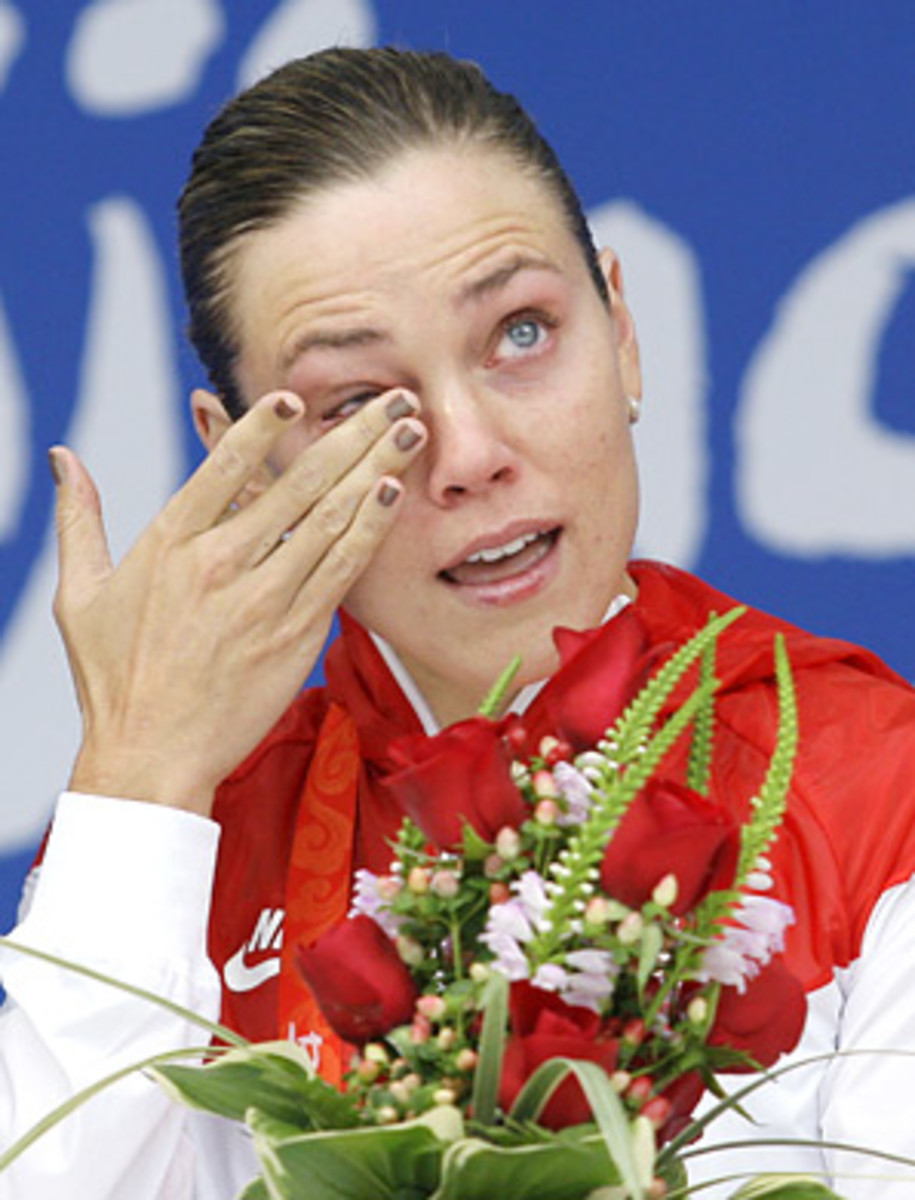Coughlin keys U.S. women's revival
The U.S. men's 4x100 freestyle relay did a lot more than keep Michael Phelps' quest for eight gold medals alive. It lit a fire under the slow-starting women's team.
Taking a cue from that unforgettable relay victory of Monday morning, Natalie Coughlin turned in the best time of her life in her best event, the 100 backstroke, on Tuesday, finally delivering the gold medal that had eluded the American women in the first two days. As she stood on the podium as the first female to repeat as Olympic champion in the event, Coughlin wept. "I was just overwhelmed with emotion," she said. "The whole team gained a lot of emotion from the men's relay. It was probably the most amazing swim I've seen. I think it got a lot of us pumped up for the rest of the meet."
Evidently. Joining Coughlin on the medal stand with a bronze medal draped around her neck was teammate Margaret Hoelzer, who owns the 200 backstroke world record but "is so not considered a 100 backstroker," according to team director Mark Schubert.
And how do you explain the performance of Rebecca Soni? The USC swimmer made the team in the 200 breaststroke but only swam the 100 breast in place of trials champion Jessica Hardy, who withdrew from the team on Aug. 1 after testing positive for the banned substance clenbuterol. In the event, she didn't know she'd swim until a few days ago, Soni won a silver medal, the seventh U.S. medal of the day. "Maybe it was yesterday's relay that inspired us all, who knows?" she said. "It definitely worked for me."
Schubert called the trio's performance "a big breakthrough" for the women's team. "I think the girls are starting to relax a bit more and have fun and swim more like themselves."
Until today, the women's performances had lacked what the men's team was producing every morning -- a dose of wow. As the team's anchors, Coughlin and Katie Hoff, spent the first few days focusing on the management of huge workloads -- both are undertaking six events -- they fell short of expectations. Coughlin swam a relatively slow leadoff leg of the silver-medal-winning 4x100 free relay and Hoff swam slower than her best times in both the 400 IM and 400 free, earning a bronze and silver, respectively.
The only individual swimmer who exceeded expectations was 22-year-old Christy Magnuson, who snuck in between two favored Australians to earn a silver medal in the 100 butterfly on Monday after setting a new American record in the semis the day before. "That was a great surprise," said Schubert. "She is going to be a great one."
Coughlin is already a great one; her rising to the occasion for the U.S. team's most solid bet for a women's individual gold was no surprise. On Monday night, Kirsty Coventry of Zimbabwe broke the 100 backstroke world record in 58.77 seconds, sending Coughlin to bed without the record for the first time in six years. "Honestly I didn't care [about losing the record]," she said. "I mentally prepared myself that someone would break my world record. I was trying to keep my head together going into this final."
Using one of the best underwater kicks in the world, Coughlin powered to the front early, led Coventry by four-tenths of a second at the turn and finished in 58.96, just 0.19 shy of Coventry's record. "I couldn't be happier," she said. "It's a best time for me, it's a gold medal." She'd trade the world record for that any day.






